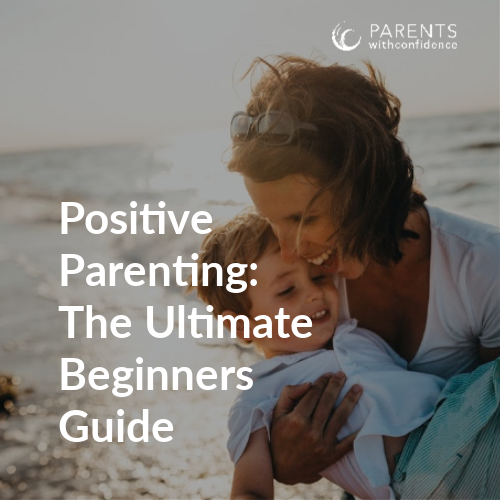Got power struggles? How to Get Kids to Listen to You
Inside: Discover the proven steps to encourage and inspire a child to listen and cooperate.
If I had a quarter every time I mused the thought, ‘Gosh, If these kids would just listen to me, things would be so much easier!’, to myself (or to my husband), I’d be a rich lady.
Doesn’t it feel like they refuse to listen at the most inconvenient times too?
Really? Must you take a stand on not wearing red shoes RIGHT NOW? Why not on our way home from preschool?

Power struggles with our kids so easily throw us off track, steering the given situation (and day) toward a disaster zone of nagging, threats and raised voices.
If power struggles or battles for power with your child are stressing you out on a regular basis, you might find hope in what many studies are now telling us, it’s time to start seeing power struggles for what they really are and responding accordingly.
It’s time to give up the ‘struggle’ and take a closer look at what’s really underneath it all, a primary human need for power.
Related read >> Positive Parenting: The Ultimate Beginners Guide to Happier Family
The first step
It feels darn good for me to get a quick response (aka obedience) when I ask my child to put on their shoes or start their homework.
It makes me feel seen, listened to and respected.
The reason it feels so good to be listened to (and so horrible when I’m not listened to!) is because this actually meets one of my vital human needs.
Here’s the thing, my kids (and yours) have this exact same human need (if you’re raising a strong willed child they have an even greater need for this!).
Your child needs to feel seen, listened to and respected just as much as you do because you and your child are both human and have a need for a healthy sense of control.
In the book ‘The Self Driven Child’ by William Stixrud, PhD and Ned Johnson they uncover and explore extensive research on stress and motivation in human beings (and animals!).
Through their studies and careers in neuropsychology and education, they conclude it’s quite probable “the most stressful thing in the universe” is having a low sense of control.
Feeling powerless in a situation, or in life, is a huge predictor of stress. Yes, this is exactly why we get so emotionally triggered as parents when our kids don’t listen (and when we’re stuck in a traffic jam!).
Related read > 75 Calm Down Strategies for Kids that work!

How to Get Kids to Listen (for the longterm)
If humans hate to feel powerless, just think for a moment about how that might impact your child given the world kids live in today.
Who decided where your child went to school this morning? What they had for breakfast? Where they’re going after school?
Highly probable that it wasn’t them.
Of course, kids don’t yet have the maturity to fully run their own lives, but it also seems with each passing decade kids have less autonomy and agency over their daily lives (think 80’s parenting vs today’s).
…And what happens when a child isn’t getting their need for healthy control met? Their subconscious prompts them to fight for it.
Related >> How to Raise an Emotionally Intelligent Child who’ll Succeed in Life
Simple 2 Step Approach
There is a 2-part answer to the question of how to get kids to listen to you more consistently.
First, expectations are everything. If we operate under the false assumption that your child is a mindless robot you’ll be utterly disappointed every time they reveal their humanity by throwing out a firm “No!” when it’s time to leave the park.
Your child needs to feel a healthy sense of control and autonomy.
When you understand that ‘power struggles’ will happen with every healthy developing child, you can keep your cool and focus your energy on the need that’s driving the behavior, leading us to the second approach.

Look for opportunities to give your child power and leadership throughout the day.
Many studies have shown that a healthy sense of power and control is associated with lower stress, greater emotional well-being and increased internal motivation.
Every human naturally desires to feel agency over their circumstances and surroundings. Here are a few easy ways to meet your child’s need for control and autonomy today (as well as improve child behavior and mood).
- Listen and validate when they state their opinion instead of blowing past it with your command “You really wanted to get ice cream today, I totally get why you’re upset”
- Offer simple choices when giving a directive “We have to go to the grocery store, would you like 4 or 5 more minutes to play?
- Ask for feedback on simple things like meal options instead of functioning on ‘parent auto-pilot’
- Let them pick their own clothes and hairstyle
- Let them do things their own way (read: don’t micromanage)
- Let them choose the music
- Let them choose their extracurriculars
- Engage in child-led play
Growing good listeners is a long-term game
When it comes to how to get kids to listen to you without yelling and negativity, the primary issue isn’t how to handle power struggles or even how to win a power struggle with your child, but how to reduce their frequency in the first place.
Instead of wondering how much easier It’d be if our kids would always blindly listen to us… it’s time to ask ourselves “how much easier would things be if I more regularly listened to my kids?”
What ways have you used to give your kids opportunities for leadership and autonomy in their daily life?
Want more guidance on how to raise an emotionally healthy child who will live their best life?
I’ve created a free 5-day email parenting course just for you.
Sign up below to gain life-changing insights and strategies on discipline without damage, helping your child manage their emotions and the best way to get your child to listen.
75 Awesome Calm Down Strategies for Kids that Work
10 Anxiety Symptoms in Children That Most Parents Miss
Parenting an Angry Child? 10 Possible Reasons Why
10 Simple Everyday Ways to Improve Your Child’s Behavior and Mood
The Best Way to Help a Child Deal with Anger Now (and throughout life)
Other helpful articles:












